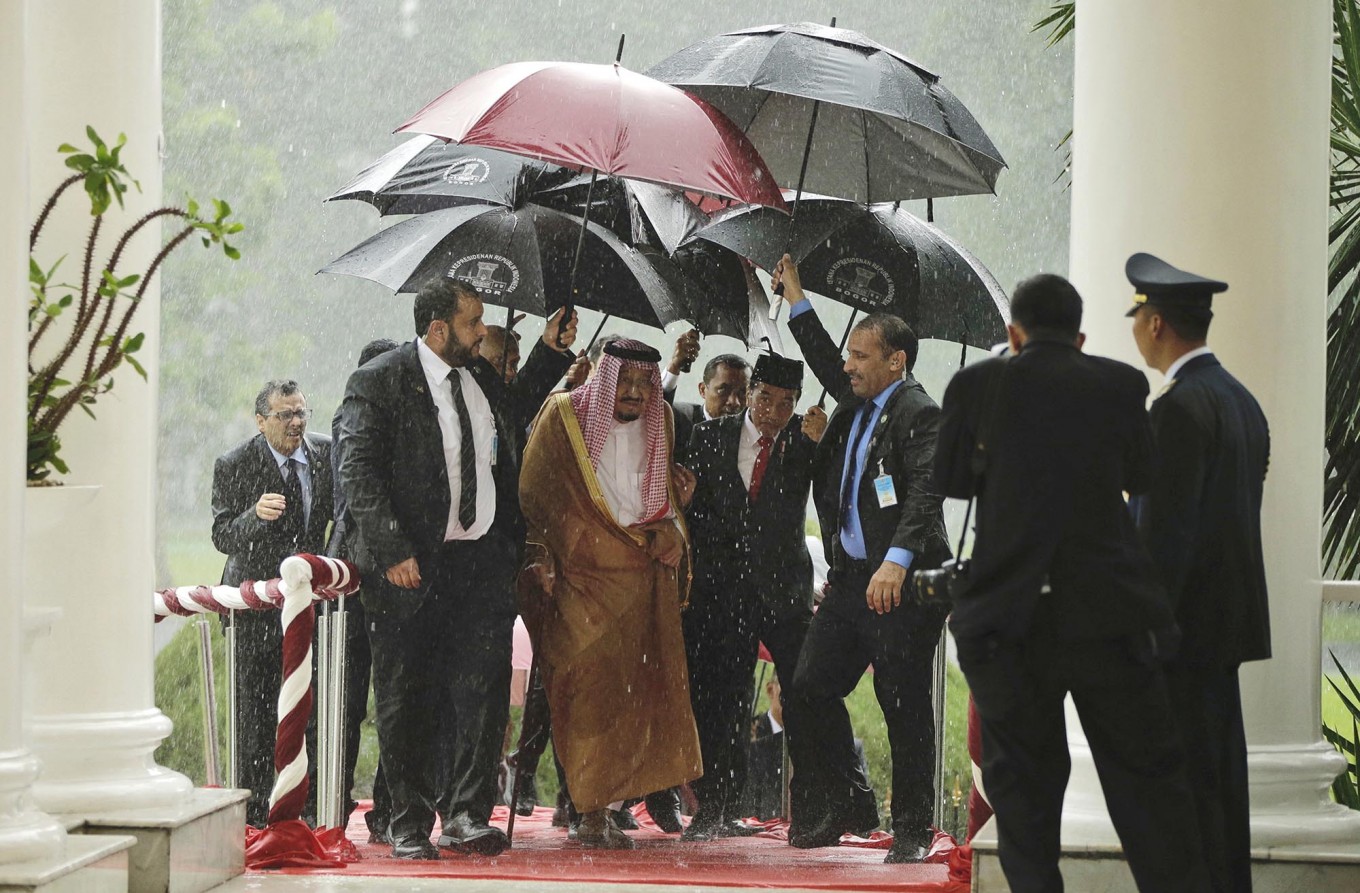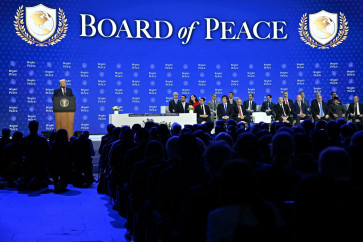Popular Reads
Top Results
Can't find what you're looking for?
View all search resultsPopular Reads
Top Results
Can't find what you're looking for?
View all search resultsModerate Islam and the future of Indonesia-Saudi Arabia cooperation
Indonesia is most likely to be the best-suited counterpart for Saudi Arabia in building a new world of Islam characterized by moderation and tolerance.
Change text size
Gift Premium Articles
to Anyone
T
he commitment of President Joko “Jokowi” Widodo to the promotion of moderate Islam in Indonesia has made him a distinct leader. For the first time in the history of Indonesia, a president has shown concern about the importance of moderate Islam for the nation’s development.
It is not a call for Indonesian Muslims only but also the Muslim world, especially after Foreign Minister Retno LP Marsudi included the promotion of moderate Islam among the priorities of Indonesian foreign policy.
The world, with moderation and tolerance, as Jokowi envisions, suits Saudi Arabia’s struggle against extremism and terrorism under the banner of Islam. Therefore, the notion of wasathiyatul (moderate) Islam could be a better backbone for diplomatic relations between the two nations.
Indonesia and Saudi Arabia share the challenge of turning the Muslim world into an exemplary community committed to moderation and tolerance. In this regard, Indonesia is most likely to be the best-suited counterpart for Saudi Arabia, the most influential Islamic kingdom in the world, in building a new world of Islam characterized by moderation and tolerance.
As the world’s largest predominantly Muslim country, Indonesia, with its dense diversity, is widely known as the best place for religious tolerance to grow. On the other hand, Saudi Arabia has apparently been the most prominent Muslim country in the Middle East region, which is home to 20 countries with a population of approximately 500 million who speak the same language and share the history, culture and experience under the notion of Arab (Angrist, 2019).
Compared to other Arab states, Saudi Arabia has been considered the most stable country. The wave of the Arab Spring in 2010, to some extent, has been responded to well by the kingdom of Saudi Arabia through internal reforms.
The concern of Saudi Arabia to become a modern-Islamic monarchy can be viewed from its policy upon the role of women. The kingdom has allowed women to drive and work outside their homes. At the same time, Saudi Arabia’s economy shows confidence. Saudi Arabia is altering its image as a conservative Islamic kingdom. In fact, as far as I know, Saudi citizens are open-minded, humble and tolerant.
The success of Indonesia in adopting democracy has impressed the world so far. The peaceful and fair general elections in Indonesia have proved how the modern way of politics is compatible with Islam. Compared to the rest of the Muslim world, Indonesia is exceptional in dealing with democracy. The country is confidently telling the world that it is the best example of the synthesis of democracy and Islam.
The success story of democratization in Indonesia, however, cannot be separated from the role of moderate Islamic organizations, Muhammadiyah and Nahdlatul Ulama (NU), respectively representing modernist and traditional Muslims. In this case, Indonesia’s experience seems a bit unique compared to Muslim countries that have failed to become democratic modern states.
The role of Islam in the modern history of Indonesia was obvious before independence. Eventually, a new nation-state of Indonesia based on the secular ideology of Pancasila, instead of Islam, was gently agreed to by those nationalist leaders. From then on, the state and Islam have been promoting moderation both in national and religious affairs.
Indonesia is facing the growth of religious intolerance and struggling for deepening religious moderation. On the other hand, in countering religious extremism, Saudi Arabia has declared that it will improve moderation and tolerance. Thus, the two friendly nations share a similar challenge.
The propagation of moderate Islam is echoed globally by Saudi Arabia under its Vision of 2030. Accordingly, the kingdom is very keen to stand for moderate Islam and against any radical thoughts and movements. As stated by the custodian of the two holy mosques King Salman bin Abdul Aziz on May 27, 2019, the kingdom condemns any extremism, violence and terrorism, arguing that Islam itself has no concern with such evil deeds. In doing so, the kingdom upholds the true Islam that is willing to stand for justice, peace and respect for human beings based on wasathiyyah (moderation) in the implementation of sharia.
In the same vein, the king said the kingdom would continue fighting any propaganda of racism, extremism and hatred, while promoting the wisest ways and rationale of moderation and tolerance. Quoting the Quranic verse (al-Anbiya: 107) “And we have not sent you (Muhammad PBUH), except as a mercy to the worlds”, the king assured the importance of the Islamic teaching of al-Syūro (consensus) and al-Islāh (reconciliation).
King Salman’s statement above seems to share the same substance with President Jokowi’s remarks on many occasions. To the general secretary of the Islamic League, Muhammad bin Abdulkarim Al-‘Isa, during his visit to Jakarta last year, Jokowi pointed out the importance of religious moderation and the long run of tolerance of Indonesia within its diversity.
The time has come for Indonesia and Saudi Arabia to share with the world their best practices of religious tolerance and moderation, from which they can creatively produce values, culture and solutions for contemporary problems faced by humankind.
***
The writer is the education and culture attaché’ at the Indonesian Embassy in Riyadh. The opinions expressed are personal.










